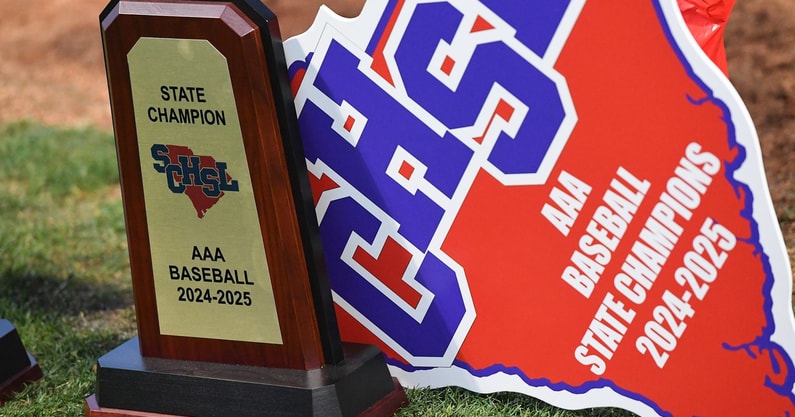SCHSL rewords bylaws to prohibit NIL deals for student-athletes
Andy Villamarzo — 18 hours ago

If lawmakers in South Carolina have it their way, name, image, likeness (NIL) won’t be coming to the Palmetto State for high school athletics anytime soon. The South Carolina High School League (SCHSL) made a move last week to double down amid pressure from state legislators.
According to a report by the South Carolina Daily Gazette, the SCHSL reworded its rules to state the student-athletes “may not earn compensation” for their respective sport. In the previous set of bylaws, it was worded that student-athletes “may earn compensation” as long as it wasn’t tied to anything to their performance athletically, doesn’t require school or league logos or is an incentive to enroll at a particular high school.
Trouble brewing in South Carolina regarding high school #NIL? The SC High School League recently altered its bylaws to still allow some form of NIL amid state legislators’ efforts to ban high school NIL via an addition to the upcoming state budget. pic.twitter.com/nEgTcDVVYK
— Daniel S. Greene, Esq. (@DanGreene15) June 24, 2025
Trouble brewing in South Carolina regarding high school #NIL? The SC High School League recently altered its bylaws to still allow some form of NIL amid state legislators’ efforts to ban high school NIL via an addition to the upcoming state budget. pic.twitter.com/nEgTcDVVYK
What the newly amended bylaws looked to accomplish is complying with a newly passed South Carolina budget clause that prohibits public school districts from affiliation with any athletic association that “permits, allows or authorizes” NIL compensation.
“I hope everybody involved with high school athletics realizes they are extracurricular activities, and they are no place for the ugliness or business activities ruining college athletics,” South Carolina state senator Sean Bennett, R-Summerville said in the report.
In the amended SCHSL rules, the violations and penalties are as followed:
First Violation: The student shall receive a formal warning and return any award(s) or money received in violation of this rule. The SCHSL shall direct the student in violation to immediately remove any endorsement, advertisement, sponsorship, or other promotional activity that is in violation of the Amateur Status Rule.
Second Violation: The student shall be ineligible to participate in SCHSL interscholastic athletics at any level of competition for a period of one (1) year from the date of SCHSL’s determination of the second violation.
Third Violation: The penalty and any additional period of ineligibility will be determined based on a consideration of the nature of the violation(s) and the extent to which the violation(s) may have been knowing, deliberate, or in reckless disregard of the provisions of this rule.
Previous wording could have been interpreted in such a way that NIL compensation was permitted, as long as it wasn’t tied to anything with high school athletics. SCHSL commissioner Jerome Singleton said that the league’s stance hasn’t changed whatsoever on NIL, but the changed wording reaffirms the want for high school athletes to maintain amateur status.
“From the very beginning … the league does not support NIL for athletic purposes. That’s the only authority we have the right to reject,” Singleton said via the South Carolina Daily Gazette report. “You can change the wording, but you can’t change the intent.”
Currently close 40 states allow NIL for high school athletes, with South Carolina being one of the last few holdouts in the country. Legal experts have chimed in that such an extreme change of wording could setup a legal battle for the SCHSL.
“What we’ve learned is that the courts are never going to accept there’s an impediment to a young person’s ability … to earn income by way of their name, image and likeness,” Student-Athlete Insights’ Bill Carter said in the Gazette report.
Among the states that have prohibited NIL are Alabama, Delaware, Hawaii, Indiana, Michigan, Mississippi, Montana, North Carolina, Ohio, Texas, West Virginia, Wisconsin and Wyoming.